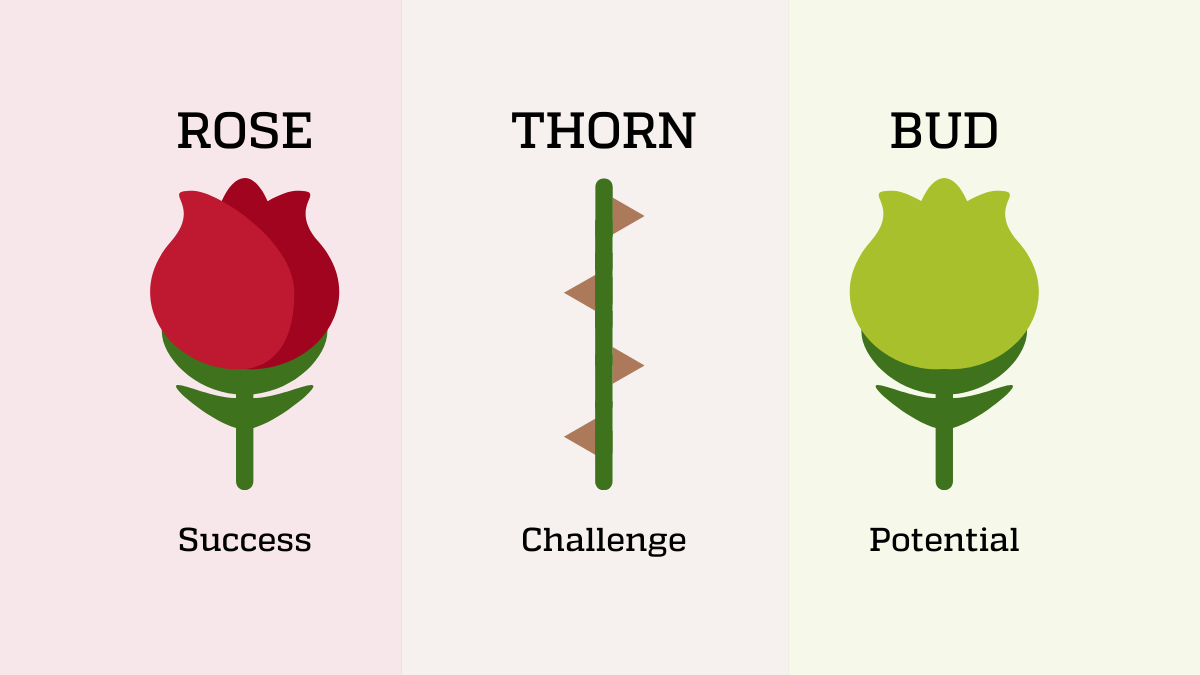1/2
Wow. Time flies.
I recently officially became a rising junior. How am I halfway through what are supposed to be the best four years of my life...
To reflect a bit, I reread some of my old journal entries and also my “A New Home” post from the first month of freshman year. Gosh. That’s so long ago - all the way back when my family was planning on naming our cat “Almond” (his name is now just affectionately “Mimi”).

I thought I’d try a bit of a different format this time instead of just spewing thoughts in a semi-organized manner. The idea is based on a reflection exercise called rose, thorn, bud (credit to my friend James for introducing me to this):
- Rose - what made me happy or proud
- Thorn - what I found challenging or didn’t like (and in turn want to change)
- Bud - what I want to work on

Rose
Friends
When I initially decided to write a second reflection, the immediate thought that came to mind was my friends. The post would not be complete without a section dedicated to the wonderful people I’ve met here.
My friend Eli from home wrote a beautiful post about friends that I’ve come to wholeheartedly agree with. TLDR: friends should just be people who you enjoy hanging out with. There doesn’t need to be any ulterior motives other than “ah yeah, I think they’re cool.” Mainstream media, especially many of those “how to get rich” pyramid schemes, portray that we should always try to be around people that need to be “interesting” or have X skills or are working at Y or are good at Z i.e. if this person does not bring materialistic impact, they aren’t a necessary friend. As much as I presently hate this borderline sociopathic idea, I likewise hate to admit I came into university viewing relationships partially through this lens.
But, the past two years have blatantly revealed to me how flawed and dirty this lens is. Like Eli said in his post, every person has a whole lifetime of unique experiences to discover. Hanging out and asking people to tell me about their lives has quickly become a favorite pastime of mine, because frankly, everyone is so cool. My idea of relationships has since aligned with Eli’s - friendship should just be a mutual enjoyment of each other’s company and yearning to support one another.
That’s not to say my friends here are not unique, brilliant, and shining. In fact, through prioritizing genuine connection, I’ve discovered people that are even more unique, brilliant, and shining.
My closest friend has an insane talent for mental logical processing - everything from chess to math just seems to come so easy to him. Another has a near perfect memory - I swear I’ll ask the most random questions, and somehow this dude has watched a YouTube video or read about it. One of them is an incredible artist - her style exudes life and it’s always a joy when she sends her art to us over Discord. Another psycho writes neural networks in assembly in his free time. Another is doing research for two labs simultaneously while also being an incredibly talented poker player. Another is so emotionally mature that he managed to pull a master’s student 4 years older than him - that same girl (who I’m also friends with) got terribly sick for half a year, missed her PhD applications, but has since rebounded to applying to full time positions and plans on returning to PhD applications in 2024. If that’s not mental fortitude, I don’t know what is. Another enjoys collecting 100,000 step days. Another is a social butterfly that has a startling grasp on “how to make friends.” Another speaks, reads, acts, talks, eats, and drinks like a philosopher. And finally, my girlfriend, a premed, is probably one of the hardest working people I’ve ever met.
I’m proud to claim that none of these friendships were fabricated from artificial motives. They arose from pure and genuine gut feelings that “I like and enjoy being around this person.” If we are actually who we surround ourselves with, then I’m more than content. I value these connections so much and they most certainly were the reddest rose in the past two years.
Professors
Thankfully, most of my professors have been charismatic lecturers. In particular, I’ve felt that Brown’s APMA department has treated me to some truly astounding professors and courses. They make me want to ditch all values of making money and go study math for the rest of my life.
Consistency
I’m proud that I’ve been able to keep doing activities that I love, namely working out and swimming. It’s definitely been tough sometimes to stay consistent, but I think I’ve done a good job of forcing myself to take no days off on these, even when I feel busy or lazy. It’s done wonders for my mental health and day-to-day energy.
There’s pressure coming into university to revolutionize yourself. To be honest, I haven’t tried to change myself too much - I haven’t found a new hobby, I haven’t found a new interest, I haven’t found a deep awakening within myself to change my concentration. Yet, I’m still thankful that I’ve been able to stick to what I loved in high school. In other words, it’s great to explore but it’s also great to be at home.
Sober
Stayed sober. No intention of changing.
Thorn
Where's the rigor?
Unfortunately, I feel that many of the undergraduate courses, especially in applied math or computer science, are not rigorous at all. Not sure if it’s just Brown. In particular, the computer science courses that I’ve taken have been disappointing to say the least - even the better classes, like a systems course that I took this past semester with a great lecturer, have glaring issues. In this case, the course was just so slow that somehow we fell behind the previous year’s offering by 2 whole lectures, meaning that a mini unit on distributed systems was completely dropped.
Many undergraduate APMA courses seem to brush aside proofs and rigor as second and instead introduce concepts at the bare minimum level. Even constraining the bounds of an undergraduate level course, this is backward - to me, it would make more sense to set the proofs first and applications second or introduce them alongside each other.
Not all courses, but enough to make me irritated. My frustration with the lack of rigor has also blossomed into another thorn…
Ego Lifting
This past year, I took a few graduate level APMA classes that I rushed into, mainly motivated by a dissatisfaction of the lack of rigor in undergraduate APMA courses. I scraped by in these classes and did fine grade-wise, but I definitely did not get everything I could out of them. Even if I waited just a year or two to take them, I probably would have gotten significantly more out of the courses and I regret it. Instead of a tower with a wide and rigid foundation, I’ve built myself a slim, lanky tower with a shoddy foundation by taking these courses so early instead of other more fundamental core classes - in a sense, I’ve immaturely ego lifted my coursework.
This prompts a discussion in mathematical maturity, which has made itself clear as more than just a superficial phrase. I first heard this term from Prof. Govind Menon, but its meaning has never been particularly apparent until I really experienced being in an environment where my level of mathematical maturity was too low i.e. the graduate level courses. It felt like I had a fraudulent understanding of the chalk on the board - working on the problem sets felt more like blind application and slight guessing. I didn’t have strong intuition about the problems - often the hardest part was coming up with a technique to even begin.
I believe mathematical maturity can only be obtained through time spent interacting with math - learning and doing problems. Because, through this time spent, one is exposed to patterns, which are reference points that can be used to then establish connections. Connections are the key to that feeling of a “deep understanding” - seeing where a piece fits into the larger puzzle is crucial to having intuition about how a subfield ebbs and flows. To me, the baseline requirement of mathematical maturity is the most drastic difference between undergraduate and graduate courses - the rest are just stylistic or content based. Unfortunately, it also seems to be the hardest difference to resolve.
Social Battery
Socializing can be super draining sometimes. I’ve become a bit of a hermit recently, but I’m looking forward to spending more time with others after I’m rejuvenated in the fall.
Bud
Why not?
One of my resolutions in the original “A New Home” post was to continually ask “why not?” rather than “why?,” also inspired by an old post by Eli. It’s been a game changer - without this reframing, I wouldn’t have gone to Paris with my friends last winter break. I wouldn’t have gone on a ski trip in the middle of the semester. I wouldn’t have participated in MCM the week before ICPC and pulled multiple all-nighters - the “Crazy Week in My Life” post would’ve never existed.
I consider my unconscious self a practical and “stay within the boundaries” type of person. Instinctively, I’m risk averse. But, consciously trying to frame decisions in a “why not?” manner flips the burden of proof onto my unconscious mind to worm myself out of uncomfortable situations that have potential to be growth experiences. In turn, I’m more likely to engage in them, and it’s had rippling effects in my depth of friendships and life motives.

Stress
This lies in line with the “why not?” point, but I want to put myself in more stressful situations, since I think that being comfortable under stress and anxiety is such a valuable skill. I have had multiple unfortunate moments where I felt that I didn’t perform up to par and/or crumbled under pressure, which is frustrating because my ability was not accurately portrayed. The only way to fix this is to continually put myself in these situations, so much so that I’m desensitized to them and the adverse effect of nervousness on my performance is minimized.
That’s all I could think of that I wanted to talk about. It’s been an eventful 2 years and I look forward to more great times - I’m pretty shocked that I didn’t have more to complain about. That’s a good thing 🙂.